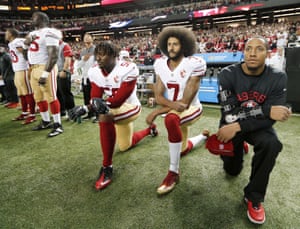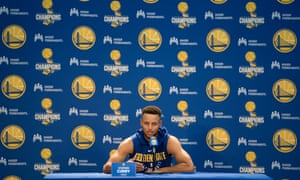Politics and sport have been bedfellows since at least the birth of the ancient Olympic Games some 28 centuries ago, when city states that vied year-round for finite resources came up with a venue of bloodless competition in which to keep themselves from killing each other.
Even in antiquity the political intrigue that followed took on many forms. Tensions over hosting rights for the quadrennial festival were commonplace. And there were no shortage of athletes who, for political ends, competed under flags of convenience.
Sparta’s loan of three-time Olympic champion Chionis in 630 BC helped put the city of Cyrene on the map. And what of Astylos of Croton, double champion of the stade and diaulos in 488 BC, who was exiled from his fatherland after taking a bribe to compete as a citizen of Syracuse four year later, prompting his former neighbors to destroy his statue and turn his house into a prison.
Their stories and countless others might have been lost had historians like Thucydides, Xenophon and Pausanias followed the imperative recognizable to athletes and journalists today: stick to sports.
The modern age has proven no more siloed: Jesse Owens staring down Hitler’s master race in Berlin, Jackie Robinson shattering baseball’s color barrier, Muhammad Ali’s conscientious objection, Fischer and Spassky’s Cold War proxy battle, the Olympic boycotts of the 1980s. The truth is, the times when politics have been absent from sport are more extraordinary than when they haven’t.
Which brings us to Friday night in a multi-purpose arena in Alabama. Speaking at a rally in Huntsville, Donald Trump offered up a five-alarm take on NFL players who have kneeled in protest during the national anthem, urging the league’s cabal of owners – including the seven who donated $1m or more to his campaign – to cut loose any player who engages in the silent act of civil disobedience started last year by former San Francisco 49ers quarterback Colin Kaepernick.
“Wouldn’t you love to see one of these NFL owners, when somebody disrespects our flag, to say, ‘Get that son of a bitch off the field right now. Out! He’s fired. He’s fired!’”

Forget the racist dog whistles, casting protesters as “those people”: this was the president telling black athletes to shut up and entertain him. Football is literally killing retired players and he mocked hard-won strides toward NFL player safety, romanticizing the days of violent hits and claiming the referees are doing too much to protect the athletes today, as false a note of nostalgia as the notion of vacuum-sealed sport itself. He spoke one day after it was found Aaron Hernandez, the 27-year-old former star who killed himself in April while serving a life sentence for murder, was found to have had the brain of a 67-year-old man despite only 44 NFL games. That was a grace note of cruelty that exceeded even Trump’s pantomime norms.
Trump’s roots in boxing promotion, where tradesmen are by necessity masters of fixed-term misdirection and the manifold arts of emotional manipulation, have served him well during his meteoric political ascent and they were on full display Friday as he seized on America’s civic religion to play to his base while diverting attention from crises at home and abroad. It’s not as if he doesn’t have enough on his plate with the debate over healthcare and escalating threat of nuclear war and a series of natural disasters that have laid waste to entire swaths of Texas, Florida, Puerto Rico and beyond.
But just because the symbolic matter of fealty to a flag and a song may pale by comparison to the crises afoot doesn’t lessen the stakes. To recap the 24 hours since: Trump rescinded a non-existent White House invitation to the NBA champion Golden State Warriors after their star player suggested he would not go to the White House; the most influential athlete in the US today called the president a “bum”; the NFL and the NFL Players Association, who under normal circumstances couldn’t agree on the time of day, came together to denounce his characterizations.
He doubled down later on Saturday with a tweet calling out Roger Goodell, the NFL commissioner who has approached political matters with an almost pathological indifference down the years, then again Sunday morning with a more focused call for a fan boycott. Goodell’s response didn’t mention Trump by name, but phrasing like “divisive comments” and “lack of respect” and “failure to understand” rated as extreme language by the milquetoast executive’s standards. The leader who pleaded for tolerance of “both sides” at Charlottesville has now presided over attacks on Kaepernick, Curry and ESPN pundit Jemele Hill, all prominent black voices in American life. Are we sensing a pattern?
The issues facing those in America marginalized by race and class were bound to bubble up and find expression in the mainstream channels of American life. It’s only a wonder it hasn’t happened sooner.

Now Trump, so skillful at leveraging the fault lines that divide us, has taken the fight to what may be America’s last great unifying arena: the games we watch. I spent a week in February at the Daytona 500 in a slightly depressed beach town that Trump won by 15 points. The winner’s glow from the inauguration was plainly visible in every inch of the 180-acre infield packed by roughly 100,000 fans who grilled food and sucked down beer and counted down the days and hours till the Great American Race.
I skinned my elbows in a wheelbarrow race in the infield and watched cars trade paint and got blind drunk into the morning hours and even occasionally deigned to talk politics, putting a human face on the concerns facing Trump’s supporters for which many on the left are condescending. To many decent, hardworking Americans, his victory was a righteous one. Often I’ve tried to contemplate his rise through this lens. Sometimes you have to go to the other extreme to find the common ground you’d never know was there and there are few better platforms to that end than sport.
But there was no misinterpreting Trump’s language on Friday in Huntsville. All it was was a white guy talking tough in a country where white guys talking tough is still for many seen as something to be impressed by. It played to our worst instincts and our lowest common denominator. It was desperate ploy dressed as a gesture of strength and the long-term effects will no doubt outstrip any short-term gains.
“When will people learn that fear won’t make someone sit down,” said Chris Conley, a wide receiver with the Kansas City Chiefs. “It quite possibly will make more stand up for what they believe in.”
There’s no telling where this ends. When Seattle Seahawks star Michael Bennett celebrated a sack with a Black Power salute last week, the protest launched by a solitary backup quarterback kneeling before a preseason game, confined to the sidelines for 13 months, spilled into the field of play. New York and Huntsville may be Athens and Sparta when it comes to differences of beliefs and values. But one thing’s for sure: when the ball goes up on Sunday afternoon, the eyes of a nation will be watching.



